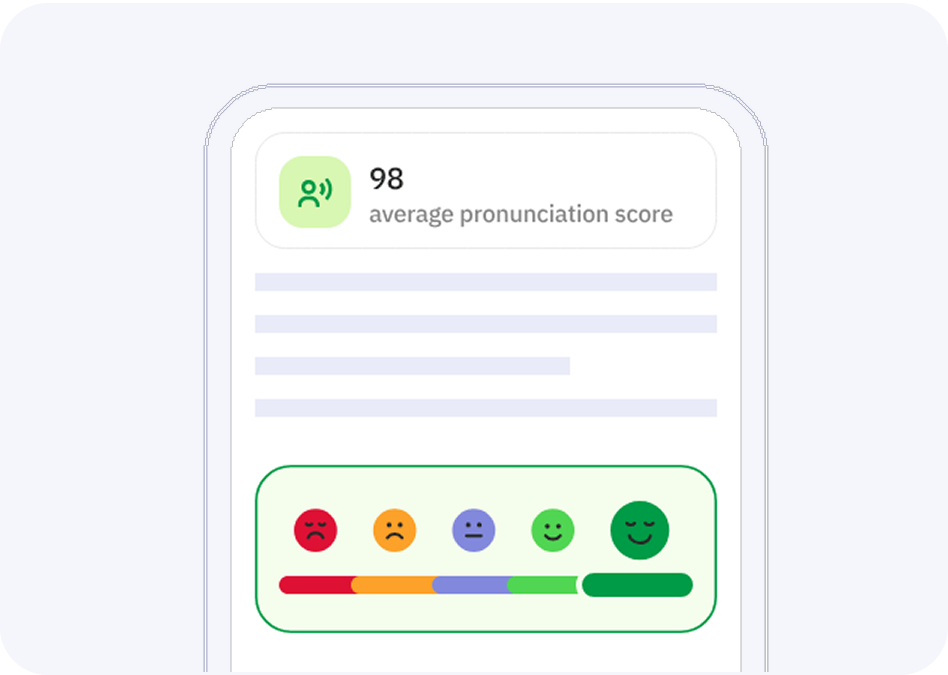Tips for improving your reading skills for language learning
Reading is a crucial skill for successful language learning. It helps you build your vocabulary, understand grammar structures, and develop a deeper understanding of the culture behind the language. Moreover, reading can expand your knowledge on various topics, making you a more well-rounded and informed individual.

The talkpal difference

Personalized Education
Every student has a distinct approach to acquiring knowledge. Through Talkpal technology, we analyze the study habits of millions of users at the same time. This data helps us craft highly effective educational tools that are fully tailored to fit the personal preferences and goals of each individual.

Cutting-Edge Technology
Our main goal is to lead the way in providing accessible and customized study experiences for all users. We utilize the most recent breakthroughs in modern innovation and AI to ensure everyone can benefit from a smart and responsive learning environment.

Making Learning Fun
We have transformed the study process into a delightful activity. Staying motivated with online courses can often be difficult, so we designed Talkpal to be incredibly captivating. Our platform is so entertaining that many users prefer developing their abilities here rather than spending time on video games.
LANGUAGE LEARNING EXCELLENCE
The most efficient way to learn a language
Try Talkpal for freeRole of Reading Skills in Language Learning
Reading skills are essential for effective communication, as they enable you to understand written text and extract meaning from it. Developing strong reading skills can significantly improve your overall language proficiency, making it easier to engage in conversations, listen to native speakers, and write in the target language.
Tips for Improving Reading Skills
A. Setting Goals and Objectives
To improve your reading skills, start by setting realistic goals and objectives. Determine what you want to achieve in terms of reading comprehension, speed, and vocabulary acquisition. Establish a timeframe for reaching these goals and regularly monitor your progress.
B. Choosing the Right Reading Materials
1. Graded Readers
Graded readers are books written specifically for language learners at different proficiency levels. They use controlled vocabulary and simplified grammar structures to make the text more accessible. These books can be a great starting point to build your reading skills.
2. Authentic Texts
As you become more comfortable with the language, try reading authentic texts such as newspapers, magazines, and novels. This will expose you to a wider range of vocabulary and sentence structures, helping you improve your reading skills further.
C. Building Vocabulary
1. Using Flashcards
Create flashcards with new vocabulary words and their definitions. Review these flashcards regularly to reinforce your memory and improve your reading skills.
2. Keeping a Vocabulary Journal
Maintain a vocabulary journal where you record new words and phrases you encounter while reading. Review this journal regularly to help commit these terms to memory.
D. Reading Strategies
1. Skimming and Scanning
Skimming involves quickly going through a text to get a general idea of its content. Scanning, on the other hand, involves looking for specific information within the text. Mastering these techniques can help you read more efficiently and effectively.
2. Reading for Main Ideas and Supporting Details
Practice identifying the main ideas and supporting details in a text. This will help you better understand the author’s message and improve your reading comprehension.
3. Summarizing and Paraphrasing
Learn to summarize and paraphrase what you read. This will help you clarify your understanding of the text and reinforce the information in your memory.
E. Techniques for Speed Reading
1. Timing and Pacing
Set a timer while you read and try to gradually increase your reading speed. This will help you become a faster and more efficient reader.
2. Reducing Subvocalization
Subvocalization is the process of silently pronouncing words in your head while reading. Reducing subvocalization can help increase your reading speed and improve your overall reading skills.
F. Enhancing Reading Comprehension
1. Annotating and Taking Notes
Make notes and annotations in the margins of your reading materials. This will help you engage with the text and improve your comprehension.
2. Asking Questions and Making Predictions
Ask questions and make predictions about the text as you read. This will help you stay engaged with the material and enhance your understanding of the content.
3. Connecting Text to Personal Experiences
Relate the content of the text to your own experiences and background knowledge. This will help you better understand and remember the information.
G. Practicing Reading Aloud
Reading aloud can help improve your pronunciation, intonation, and overall fluency in the target language. Practice this skill regularly to enhance your reading and speaking abilities.
Incorporating Reading into Everyday Life
A. Reading for Pleasure
Choose books and articles that interest you and read for enjoyment. This will help you develop a positive attitude towards reading and motivate you to read more often.
B. Reading for Professional Development
Read materials related to your field of work or study. This will not only improve your reading skills but also help you stay up-to-date with industry trends and developments.
C. Reading for Academic Purposes
If you are a student, read academic texts, articles, and research papers in your target language. This will help you improve your reading skills while also expanding your knowledge in your chosen field.
Monitoring and Assessing Progress
A. Using Self-Assessment Tools
Use self-assessment tools such as reading comprehension quizzes and speed reading tests to track your progress. This will help you identify areas for improvement and adjust your learning strategies accordingly.
B. Seeking Feedback from Peers and Teachers
Ask for feedback from friends, classmates, or teachers who are proficient in the target language. They can provide valuable insights and suggestions to help you improve your reading skills.
Conclusion
A. Recap of Tips
Improving your reading skills for language learning requires dedication and consistent practice. By setting goals, choosing the right reading materials, building your vocabulary, and implementing effective reading strategies, you can significantly enhance your reading abilities.
B. Encouragement for Continuous Improvement
Remember that language learning is a lifelong journey. Continue to challenge yourself and explore new reading materials to further develop your skills and deepen your understanding of the language and its culture.
The most efficient way to learn a language
Try Talkpal for freeFrequently Asked Questions
How long does it typically take to see significant improvement in my reading skills?
Can audiobooks be helpful for improving reading skills?
Is it better to read texts with or without translations?
How can I stay motivated to read regularly in my target language?
Should I focus on reading materials that are at or slightly above my current proficiency level?







